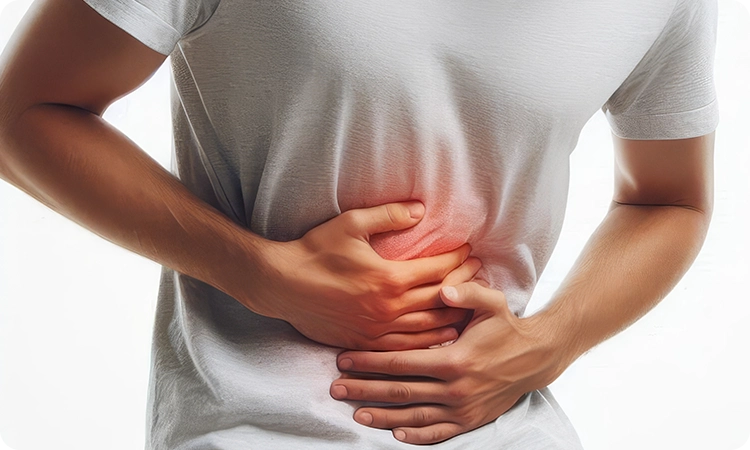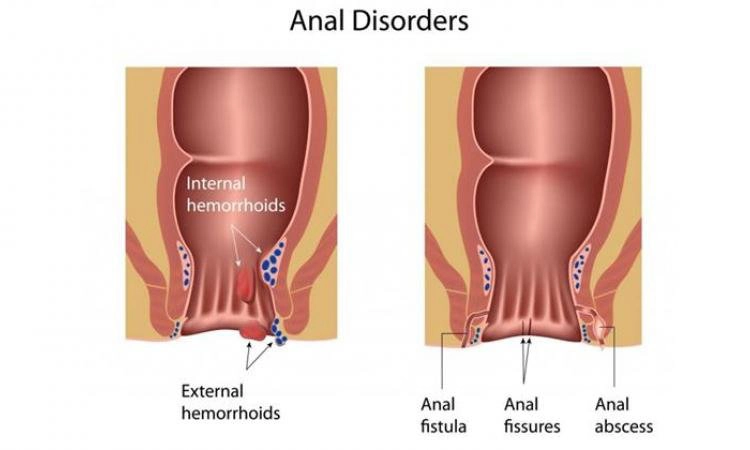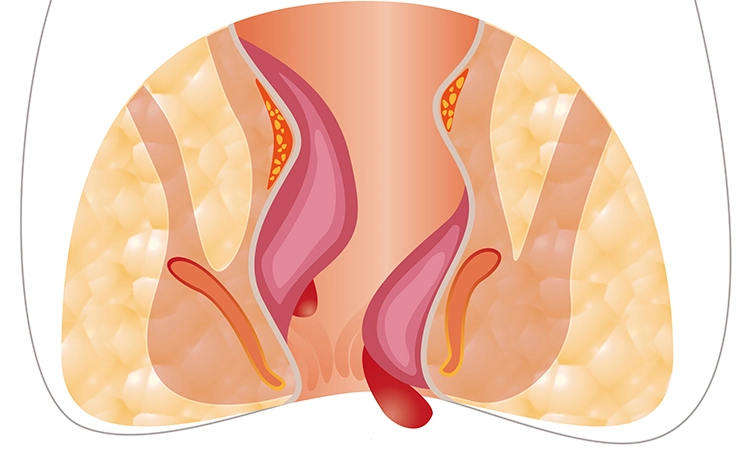Digestive Disorders
- Home
- »
- Ayurveda Speciality
- »
- Digestive Disorders
Digestive Disorders Ayurveda Treatment in Dubai
Gastroesophageal Reflux Disease (GERD)

GERD, also known as acid reflux, is a condition in which content returns into the oesophagal tract producing a burning sensation. Normally, acid medium is confined to the stomach by a valve (sphincter), which regulates the return. If the sphincter dysfunction or becomes weak, acid from stomach returns, causing symptoms of heartburn. Common signs and symptoms of GERD include – heartburn after eating (worsen at night), chest pain, difficult swallowing, regurgitation of food or sour liquid, sensation of a lump in the throat, disturbed sleep etc. Several studies suggest a significant association of GERD and respiratory problems – chronic cough, laryngitis and asthma. Overweight, overeating or use of certain foods or beverages, and few medications contribute to GERD. The GERD is treated in a variant approach compared to gastritis; According to Ayurveda Digestive disorders treatment in Dubai is Vata imbalance,Not a variation of Pitta .
Digestive Disorders Treatment Tips:
- Elevate the head side of coat.
- Take light (Easily Digestive) meals, instead two or three heavy meals
- Eat food slowly and chew thoroughly. Take early dinners. Limit uncooked salads, avoid fatty or fried foods, Reduce mustard, vinegar, tomato sauce, alcohol, citrus products, garlic, onion, carbonated drinks and caffeine.
- Drink boiled water (with cumin seeds).
- Fasting for half day in a week can be helpful.
- Nayopayam kashayam, Indukantham kashayam Dhanwantharam gulika, Kalyanagulam, Gandharvahasthadi kashayam, Guloochyadi kashayam, Drakshadi kashayam, Sankha bhasma etc are effective Ayurveda medicines in clinical practice, accoding to the suggestion & Advise of our Ayurveda doctor. The dosage and duration of medication is varying with person to person.
Digestive Disorders Ayurveda Treatment in Dubai
Peptic Ulcer

Although stress and spicy foods were once thought to be the main causes of peptic ulcers, we now know that the commonest cause of ulcers is the bacterium Helicobacter pylori (H. pylori). H. pylori lives within the mucous layer that covers stomach and small intestine. Often, H. pylori causes no problems. But sometimes it can disrupt the mucous layer and inflame the lining of our stomach producing an ulcer. Other causes of gastric ulcers are regular use of painkillers, smoking, excessive alcohol consumption, stress etc. Peptic ulcer group of diseases are mentioned as Parinamasoola & Amlapitta in Ayurveda which are due to a Pitta imbalance.
Treatment Tips:
- Favor Pitta balancing foods like – Asparagus, Broccoli, Cabbage, Cauliflower, Celery, Cucumber, Green beans, Bitter gourd, Snake gourd, Leeks, Peas, Apples, Avocados, Sweet cherries, Coconut, Pomegranate, Grapes, Figs, Mangoes, Raisins, Plums, Coriander, Cinnamon, Fennel, Saffron, Turmeric, Mint. You may however avoid any problem causing food among this list.
- There’s a wide range of effective classical Ayurvedic medicines like Mahatiktakam, Avipathi choornam, Kalyanagulam, Charngeryadi ghritham, Kaidaryadi kashayam, Dadimadi choornam etc. indicated in the treatment of Gastric ulcer. Meet our Ayurveda doctor.
Digestive Disorders Ayurveda Treatment in Dubai
Hemorrhoids / Piles
An embarrassing topic of discussion, haemorrhoids is one of the most common ailments. Haemorrhoids, also called piles, are swollen and inflamed veins in the anus. You should undergo a physical examination and perform other tests for a proper diagnosis. The causes for Haemorrhoids are grouped in different head like, hereditary factors, anatomical causes, physiological causes, triggering causes (eg. irregular bowels, straining during bowels) and secondary causes (eg. pregnancy, obesity). An anatomical factor to consider here is that, we are upright and biped, and that gravity causes increased pressure on the veins in rectum. Continuous long standing/walking might be a cause for both the bead protrusion as well as the knee pain in your case. Haemorrhoids are classified, depending on severity, into four degrees.
- First degree: Piles always remain inside
- Second degree: Piles extend out during a bowel movement but return on their own
- Third degree: Piles extend out during a bowel movement but can be pushed back inside
- Fourth degree: Piles is always outside
Treatment Tips:
- Most of the time, treatment for hemorrhoids involve steps that you can take on your own, such as lifestyle modifications (eg: Eat high-fiber foods, Drink plenty of fluids, Exercise, Avoid long periods of standing or sitting)
- As home remedy, include plenty of buttermilk, and yam (vegetable) in your diet.
- Boil a glass of milk with 5-6 small onions and drink at bedtime.
- Reduce meat & lentils in your diet.
- But, in a third-degree piles, medications would be necessary. Meet our Ayurveda doctor
Digestive Disorders Ayurveda Treatment in Dubai
IBD - Inflammatory Bowel Disease
Inflammatory bowel disease (IBD) is a term used to describe disorders that involve inflammation of the digestive tract. Types of IBD include: Ulcerative colitis and Crohn’s disease. Inflammatory bowel disease (IBD) is characterized by diarrhea, rectal bleeding, abdominal pain, fatigue and weight loss. Crohn’s disease causes inflammation of the lining of our digestive tract, which can lead to abdominal pain, severe diarrhea and even malnutrition. The inflammation caused by Crohn’s disease often spreads deep into the layers of affected bowel tissue. Ulcerative colitis causes inflammation and sores, in the innermost lining of the rectum and colon. Ulcerative colitis causes chronic inflammation of the digestive tract, is characterized by abdominal pain, diarrhoea and bleeding per anus. The disease is believed to be because of an abnormal immune response to invading pathogens or as an autoimmune response even in the absence of pathogens. Genetic makeup may also play a contributing role. Stress doesn’t cause inflammatory bowel disease; it can trigger flare-ups.
Treatment Tips:
- Changes in diet and lifestyle may help control her symptoms and lengthen the time between flare-ups. It’s a good idea to try eliminating anything that seems to make your signs and symptoms worse.
- Try low-fat foods & fibre, eat small meals etc.
- Drink plenty of fluids and include nutritional supplements.
- A complimentary approach is more effective in IBD. Herbs like Yashtimadhu (Glycerrhiza glabra), Amla (Emblica officinalis), Sariba (Hemidesmus indicus), Patola (Trichosanthes dioica), Turmeric (Curcuma longa), Ginger (Zingiber officinale), Ativisha (Aconitum heterophyllum), Bilva (Aegle marmelos), Udumbar (Ficus glomerata), Kutaja (Holarrhena antidysenterica), Musta (Cyperus rotundus), Naagkeshara (Mesua ferrea) are effective in IBD’s.
- Ayurvedic formulations like Chargeryadi ghritham, Vrisha ghritham, Dadimashtaka choornam, Guggulu panchapalam choornam, Guloochyadi kashayam etc are effective for long-term remission.
- Certain foods and beverages can aggravatesigns and symptoms, especially during a flare-up condition. If raw fruits and vegetables bother, try steaming or baking them.
- Watch for dairy products, fatty foods, cabbage, broccoli, cauliflower, nuts, seeds, corn, beans, citrus fruits, spicy food, alcohol, caffeine, chocolate and soda.
- Include pomegranate, curry leaves, aloe vera, turmeric and asparagus in his diet.
- Meet our Ayurveda doctor without delay.
Digestive Disorders Ayurveda Treatment in Dubai
IBD - Inflammatory Bowel Disease
Inflammatory bowel disease (IBD) is a term used to describe disorders that involve inflammation of the digestive tract. Types of IBD include: Ulcerative colitis and Crohn’s disease. Inflammatory bowel disease (IBD) is characterized by diarrhea, rectal bleeding, abdominal pain, fatigue and weight loss. Crohn’s disease causes inflammation of the lining of our digestive tract, which can lead to abdominal pain, severe diarrhea and even malnutrition. The inflammation caused by Crohn’s disease often spreads deep into the layers of affected bowel tissue. Ulcerative colitis causes inflammation and sores, in the innermost lining of the rectum and colon. Ulcerative colitis causes chronic inflammation of the digestive tract, is characterized by abdominal pain, diarrhoea and bleeding per anus. The disease is believed to be because of an abnormal immune response to invading pathogens or as an autoimmune response even in the absence of pathogens. Genetic makeup may also play a contributing role. Stress doesn’t cause inflammatory bowel disease; it can trigger flare-ups.
Treatment Tips:
- Changes in diet and lifestyle may help control her symptoms and lengthen the time between flare-ups. It’s a good idea to try eliminating anything that seems to make your signs and symptoms worse.
- Try low-fat foods & fibre, eat small meals etc.
- Drink plenty of fluids and include nutritional supplements.
- A complimentary approach is more effective in IBD. Herbs like Yashtimadhu (Glycerrhiza glabra), Amla (Emblica officinalis), Sariba (Hemidesmus indicus), Patola (Trichosanthes dioica), Turmeric (Curcuma longa), Ginger (Zingiber officinale), Ativisha (Aconitum heterophyllum), Bilva (Aegle marmelos), Udumbar (Ficus glomerata), Kutaja (Holarrhena antidysenterica), Musta (Cyperus rotundus), Naagkeshara (Mesua ferrea) are effective in IBD’s.
- Ayurvedic formulations like Chargeryadi ghritham, Vrisha ghritham, Dadimashtaka choornam, Guggulu panchapalam choornam, Guloochyadi kashayam etc are effective for long-term remission.
- Certain foods and beverages can aggravatesigns and symptoms, especially during a flare-up condition. If raw fruits and vegetables bother, try steaming or baking them.
- Watch for dairy products, fatty foods, cabbage, broccoli, cauliflower, nuts, seeds, corn, beans, citrus fruits, spicy food, alcohol, caffeine, chocolate and soda.
- Include pomegranate, curry leaves, aloe vera, turmeric and asparagus in his diet.
- Meet our Ayurveda doctor without delay.
Digestive Disorders Ayurveda Treatment in Dubai
Fistula in Ano

Anal Fistula is an infected tunnel that develops between the skins around anus with an internal opening inside the anus. Pus or blood discharge from a small opening around anus, constant pain – swelling – irritation – around anus, pus or blood discharge with stool are the signs and symptoms. Anal fistulas develop as a result of an infection of an anal gland. This infection results in an abscess that drains spontaneously through the skin next to the anus. The fistula then forms a tunnel under the skin and connects with the infected gland.
Treatment Tips:
- Sitz bath in lukewarm water
- Avoid foods which can cause constipation
- Ayurvedic medicines and Kshara sutra are effective in the management of Fistula.
Digestive Disorders Ayurveda Treatment in Dubai
Anal Fissure

An anal fissure is a common, painful condition in which the lining of the anal canal is torn. Anal fissure is a small tear in the lining of the anal canal which can cause symptoms of: pain, burning sensation, bleeding (drops or streaks of blood), itching during & after defecation. This type of tear may develop in adults during bowel movements. Anal fissure is also common in infants. Causes of anal fissure are constipation, straining during bowel movements, large or hard stool passing through the anal canal and inflammatory bowel diseases. Once the skin is torn, each subsequent bowel movement can be painful. The amount of bleeding that occurs with an anal fissure is little.
Treatment Tips:
- The first approach of treatment is lifestyle and self-care measures such as adding more fiber to your diet, drinking more water, getting regular exercise, and taking a stool softener. Most anal fissures heal within a few weeks with treatment for constipation, but some fissures may become chronic.
- Adding fiber to your diet improves fissure healing and helps keep stools soft. Drink plenty of water & exercise regularly; avoid straining during bowel movements.
- Meet an Ayurveda doctor who might put you on medications like Sukumaram ghritham, Chirivilwadi kashayam, Gandharvahasthadi kashayam, Guggulu panchapalam choornam.
- Include Elephant Yam (Amorphophallus) & butter milk (not yoghurt) in diet
- Ayurveda recommends dietary and lifestyle modification and suggest reducing fizzy drinks, late dinner, spicy, sour and oily foods, potato, pickles, coffee etc.
